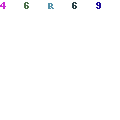Visiting scholar helps kick off Native American Studies minor
Dr. Annalyssa Gypsy Murphy, visiting assistant professor of anthropology, helped to kick off a new minor at SIUE. The Native American Studies program is an interdisciplinary minor that combines anthropology, art, history, philosophy, political science and a special topics interdisciplinary studies course.

Murphy (left) stands with Lynn Braveheart, a Native American speaker she brought to SIUE as part of the Native American minor.
The goal of the minor is to create a dialogue beneficial to students and scholars, and Native Americans in the region and at SIUE. Murphy is part of a larger initiative of the dean’s office that will give a broad exposure to SIUE students.
“This (the visiting scholar initiative) will allow departments and programs to bring, for one semester or an entire academic year, an outside scholar, whether it is a junior or a more established one, that will provide both teaching and scholarly interactions with SIUE faculty and students,” said Aldemaro Romero, dean of the College of Arts and Sciences. “This is a great opportunity for the CAS community to enhance our intellectual engagement.”
Murphy comes to SIUE with a doctorate from Clark University in Massachusetts, where her dissertation research examined Native American literature as a form of social protest.
Murphy brings a lot of passion to the topics she is teaching this semester and is looking forward to the courses next semester.
When asked about where she is from, Murphy stated how that question is very difficult for Native Americans to answer. Native Americans answer the question with a tribal connection as opposed to a geographic location, according to Murphy. She also acknowledges how difficult it is to explain what her Native American roots are.
“My enroll-ability status is through the Cherokee nation of Tahlequah, Okla., but I’ve never been to Oklahoma. And, I’m adopted so I am not enrolled. My mother is Cherokee and Blackfeet but, because of federal Indian law, she could only be of one tribe, so her tribe of identity is the Cherokee Nation of Tahlequah.
Murphy states that a complex academic journey was largely a search for place because she did not see a place for her in traditional Native American studies. The direction she wanted her study to take her was very different from the direction offered by academic institutions. Murphy was looking for a system that would allow her to mix very different studies.
“Fortunately for me, Women’s Studies (at Clark University) allowed a program with interdisciplinary scholars from all these other traditional disciplines and they said, ‘Hey. We can create this program. We can help you with your course of study.’ And, through that I discovered what Robert Warrior calls intellectual sovereignty—what Sandy Graham calls red pedagogy—where I can synthesize different world views and ways of knowing as relevant to the material.”
Murphy believes the best way to get students interested in topics is to make the topics as personal as possible. She finds that the more personal she teaches the class, the deeper it reaches the students.
“I think for me it was that it became the alternative is worse,” Murphy explained when asked why she puts her personal life on the line in class. “The alternative is a life less filled—a life less lived. I had a G.E.D.; I never went to high school. I never finished a semester of high school. I was a homeless kid, but, I have a Ph.D. with a 4.0 G.P.A. because I wanted to be the best in the arena I wasn’t supposed to be in.”
Murphy also believes that being honest and open about the material is the best way to teach it and the best way to learn it as well. When she looks back on her life, the best learning moments she had were not in a classroom. She stated that many times students will speak to her about how emotional the class is for them.
“The Vietnam vets in the back of the bus who, when I was 14, I called baby killers. They schooled me on war more than any class ever could. And, then in the end, the one man gave me his service pin for serving in Vietnam and said I am why he was there fighting, that a kid like me could stand up and say war is wrong,” said Murphy.
Another method Murphy uses to garner interest in her classes is to bring a ‘kindergarten excitement’ level to the material.
“Do you remember in kindergarten when you learned secondary colors and you would write your name, and you wrote it everywhere and nobody ever said, ‘OK, time to make purple and you would think, ‘Oh man! Purple!’” Murphy explained. “You didn’t think, ‘I hate purple.’ You were excited. I want that in learning.”
Murphy believes that the program that SIUE is now offering to be a strong program. She is glad that she is a part of giving the program a strong base.
“The greatest strength is that it is a broad-based, interdisciplinary program in the truest sense. There are people who all have a baseline desire to do something in terms of indigeneity. They come at it from a lot of different angles” Murphy said.
Filed Under: Anthropology • Native American Studies












